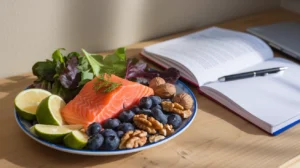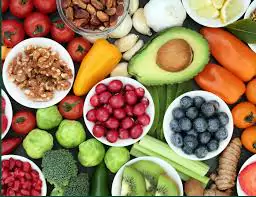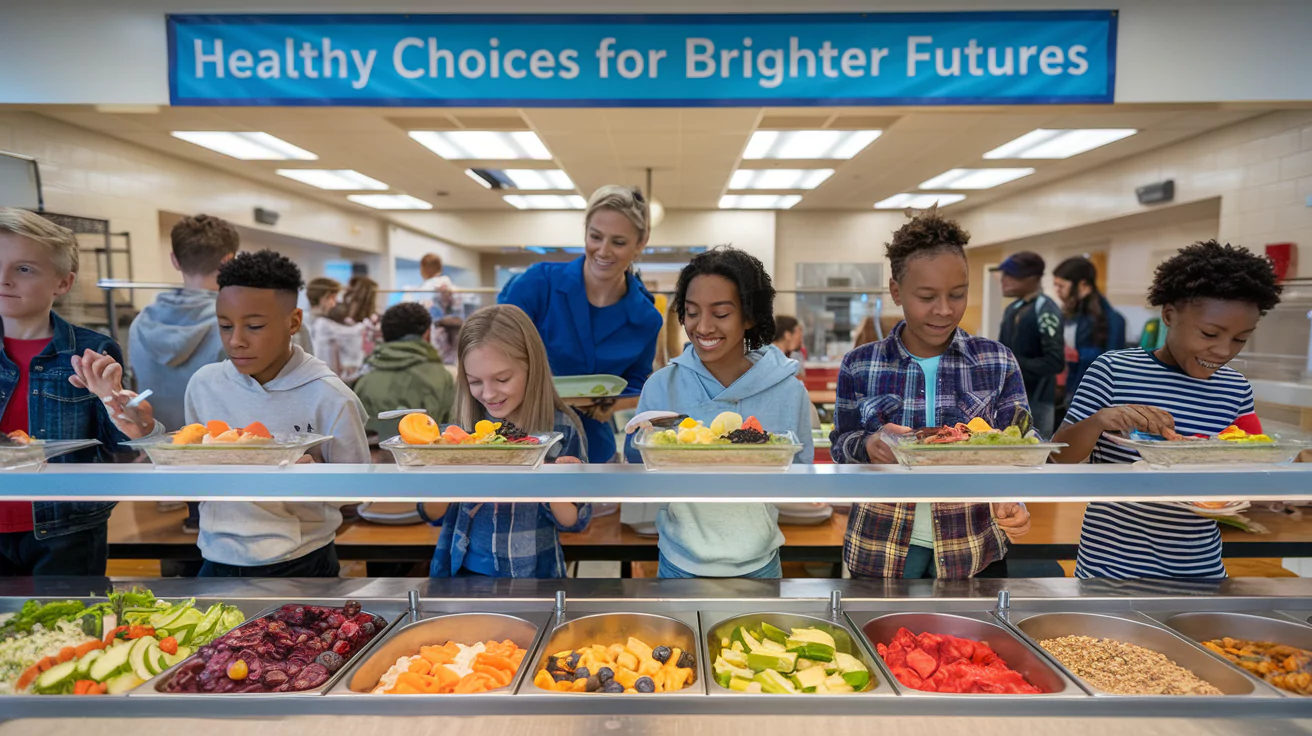Recently updated on April 15th, 2025 at 11:20 am
Are you struggling to stay focused during long study sessions? Reaching for sugary snacks while cramming for exams? You’re not alone. Many students underestimate the powerful connection between nutrition and learning. Learn to Eat Well – Eat Well to Learn isn’t just a saying — it’s a smart strategy. The right foods can boost your focus, memory, and energy, helping you study smarter, not harder. 🍎📚
The good news is, you can supercharge your brain and boost your academic performance by making smart food choices. Imagine having sustained energy, improved memory, and enhanced cognitive function – all through the power of nutrition. It’s not just about avoiding junk food; it’s about strategically fueling your brain for success.
In this blog post, we’ll explore the fascinating link between nutrition and learning, and show you how to build a brain-boosting diet that works for you. From meal planning for academic success to developing healthy eating habits, we’ll cover everything you need to know to eat well and learn well. Get ready to transform your plate and your grades! 🥗
1. Understanding the Link Between Nutrition and Learning

How food affects brain function
Your brain’s performance is directly influenced by what you eat. Nutritious foods provide essential building blocks for neurotransmitters and support overall brain health. A balanced diet rich in vitamins, minerals, and antioxidants can enhance cognitive function, while poor nutrition may lead to mental fog and decreased focus.
Key nutrients for cognitive performance
| Nutrient | Benefits | Food Sources |
|---|---|---|
| Omega-3 fatty acids | Improve memory and learning | Fish, walnuts, flaxseeds |
| Antioxidants | Protect brain cells | Berries, dark chocolate, leafy greens |
| B vitamins | Support energy production | Eggs, whole grains, legumes |
2. Building a Brain-Boosting Diet

Essential foods for mental clarity
Your brain thrives on nutrient-rich foods. Incorporate these brain-boosting options into your diet:
- Fatty fish (salmon, mackerel)
- Blueberries
- Nuts and seeds
- Dark leafy greens
- Whole grains
| Nutrient | Food Sources | Benefits |
|---|---|---|
| Omega-3 | Fish, walnuts | Improves memory |
| Antioxidants | Berries, dark chocolate | Protects brain cells |
| B-vitamins | Eggs, avocados | Enhances focus |
Balanced meals for sustained energy
To maintain steady energy levels throughout your day, focus on balancing your macronutrients. Aim for a combination of complex carbohydrates, lean proteins, and healthy fats in each meal. This approach helps stabilize blood sugar levels, preventing energy crashes that can hinder your learning and concentration.
3. Meal Planning for Academic Success

Breakfast ideas to jumpstart your day
Start your day right with these brain-boosting breakfast options:
- Oatmeal with berries and nuts
- Greek yogurt parfait with granola
- Whole-grain toast with avocado and eggs
| Breakfast Item | Brain Benefits |
|---|---|
| Oatmeal | Sustained energy |
| Berries | Antioxidants |
| Nuts | Omega-3 fatty acids |
Lunch options for midday energy boost
Keep your focus sharp with these nutrient-packed lunch choices:
- Quinoa salad with grilled chicken and vegetables
- Whole grain wrap with hummus and mixed greens
- Lentil soup with a side of fruit
4. Nutrition Strategies for Different Learning Phases

Exam preparation diet
Your exam preparation diet can significantly impact your performance. Focus on foods rich in omega-3 fatty acids, antioxidants, and complex carbohydrates to boost brain function and memory.
| Nutrient | Benefits | Food Sources |
|---|---|---|
| Omega-3 | Improves memory | Fish, walnuts, flaxseeds |
| Antioxidants | Reduces stress | Berries, dark chocolate |
| Complex carbs | Sustained energy | Whole grains, oatmeal |
Foods to consume during intense study periods
During intense study periods, prioritize:
- Hydrating foods (cucumber, watermelon)
- Protein-rich snacks (Greek yogurt, almonds)
- Green leafy vegetables (spinach, kale)
Also See: Time Management Skills to Boost Student Productivity
5. Developing Healthy Eating Habits

Creating a sustainable meal schedule
You can enhance your learning potential by establishing a consistent meal schedule. Aim for three balanced meals and two nutritious snacks daily. This routine helps stabilize blood sugar levels, improving focus and energy throughout the day.
| Meal | Time | Example |
|---|---|---|
| Breakfast | 7-8 AM | Oatmeal with berries |
| Snack | 10-11 AM | Greek yogurt with nuts |
| Lunch | 12-1 PM | Grilled chicken salad |
| Snack | 3-4 PM | Apple with almond butter |
| Dinner | 6-7 PM | Baked salmon with veggies |
Mindful eating techniques
Practicing mindful eating can significantly impact your nutrition and learning outcomes. Try these techniques:
- Eat without distractions (no screens)
- Chew slowly and savor each bite
- Pay attention to hunger and fullness cues
- Appreciate the colors, textures, and flavors of your food
6. The Social Aspect of Eating Well

Cooking and sharing meals with peers
You can enhance your learning experience by cooking and sharing meals with your peers. This social aspect of eating well not only improves your culinary skills but also strengthens bonds with classmates. Try organizing potluck dinners or cooking sessions where everyone contributes a healthy dish. Here’s a simple meal plan idea:
| Day | Meal | Dish |
|---|---|---|
| Monday | Dinner | Vegetable stir-fry |
| Wednesday | Lunch | Quinoa salad |
| Friday | Breakfast | Smoothie bowl bar |
Navigating dining halls and cafeterias
When eating in dining halls, you have numerous options. Make informed choices by:
- Opting for colorful vegetables
- Choosing lean proteins
- Limiting sugary drinks
Conclusion
Nourishing your body with the right foods is not just about maintaining physical health; it’s a powerful strategy for enhancing your learning capabilities. By understanding the connection between nutrition and cognitive function, you can make informed choices that fuel both your body and mind. Remember, a brain-boosting diet, thoughtful meal planning, and tailored nutrition strategies for different learning phases are all key components of eating well to learn well.
Developing healthy eating habits and embracing the social aspects of meals can further enhance your overall well-being and academic performance. As you embark on this journey of eating well to learn well, take small, consistent steps towards better nutrition. Your brain and body will thank you, and you’ll likely see improvements in your focus, memory, and overall learning experience. Start today by making one positive change to your diet and watch as it ripples through your academic life.







vyezdnoj-shinomontazh-77dar
April 9, 2025[url=https://vyezdnoj-shinomontazh-77.ru]шиномонтаж выездной москва рядом со мной[/url]
ShumoizolyaciyaArokbraro
April 9, 2025шумоизоляция арок авто https://shumoizolyaciya-arok-avto-77.ru
ShumoizolyaciyaAvtodar
April 9, 2025шумоизоляция авто https://vikar-auto.ru
Krovlyabraro
April 9, 2025Привет всем! Сегодня затронем тему — сколько стоит ПВХ крыша. Суть в том, что: первоначальные затраты выше — зато экономия потом. Хочешь расчёт — обращайся к: [url=https://montazh-membrannoj-krovli-spb.ru]https://montazh-membrannoj-krovli-spb.ru[/url]. Как это работает: ПВХ не дёшев, но служит 30 лет. Допустим постоянно латаешь — то есть переплачиваешь в итоге. Основные этапы: сравнивай полную стоимость владения. Резюмируем: высокоэффективный инструмент — инвестиция в спокойствие.
Krovlyabraro
April 9, 2025Здравствуйте дорогие друзья! Сегодня затронем тему — выбор материала для крыши. По сути экономить на кровле — выйдет дороже. Ищешь профессионалов — вот проверенный сервис: [url=https://montazh-membrannoj-krovli-spb.ru]https://montazh-membrannoj-krovli-spb.ru[/url]. Лично я вижу: ПВХ покрытие — выгоднее в перспективе. Например рубероид меняешь каждые 5 лет — соответственно ПВХ не требует обслуживания. Основные этапы: нанять опытную бригаду. Вот и соответственно: это работает для долговечной кровли.
ShumoizolyaciyaAvtodar
April 9, 2025шумоизоляция авто https://vikar-auto.ru